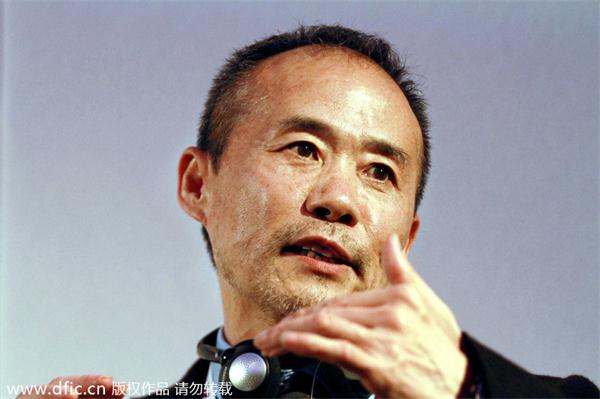Many private companies face unfair competition
(China Daily) Updated: 2016-02-02 08:39
 |
|
Wang Shi, Chairman of China, speaks at the first UK-China Business Leaders Summit in London, June 2, 2014. [Photo/IC] |
Wang Shi, board chairman of Vanke Co Ltd, China's leading residential developer, said on Saturday that he does not welcome private enterprises being the largest shareholders of his company. Beijing News deems Wang's remarks prejudicial and calls for institutional support for private companies to fairly compete in the market.
It is foreseeable that Wang's controversial comment about private companies will give rise to heated discussion and speculation, especially when his company is in a bitter confrontation with Baoneng Group, a private insurance and property conglomerate which became its largest shareholder, replacing the State-owned China Resource Group.
Like Vanke, some leading private enterprises founded in Shenzhen, a front-runner in the country's reform and opening-up, have more or less benefited from their semi-State-owned status without losing their private nature.
Their closeness to State-owned counterparts has granted them easier access to certain resources, which, to some extent, may explain Wang's concerns about losing State-owned endorsement in the real estate market after Baoneng's "aggressive takeover".
But the truth is, Vanke's path to success is not a panacea for all private players, many of which, including the Shenzhen-based Huawei Technologies and Tencent Holdings, have managed to grow robustly thanks to their own strengths. Their leading position in the domestic and overseas markets has inspired a number of wannabes that are innovating the traditional business models.
Besides, the ongoing multi-ownership reform among China's State-owned enterprises is, in essence, about encouraging them to adopt a modern, market-oriented management system. Therefore, it is inappropriate to hold a grudge against private companies or dismiss their contributions to the country's growth.
Of course, Wang's obsession with the support of State-owned enterprises also highlights the fact that many private companies are not competing on a level playing field, especially when it comes to the acquisition of certain resources. To better protect true private enterprises from being discriminated against requires the introduction of fairer and more transparent market rules.










